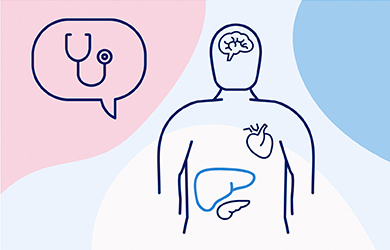
What is GLP-1
Glucagon-like peptide 1 (GLP-1) is a naturally occurring hormone in the body. Although its production is inhibited in people with type 2 diabetes, its function remains possible.
Meet Christian who shares tips to manage diabetes through exercise
You might be wondering, does exercise lower blood sugar levels? Regular exercise can help you control your blood sugar levels, lose weight, and improve your physical and mental health2.
Even a slight increase in physical activity can make a difference. If you have not been active for a while, start with just 5–10 minutes of exercise a day and add a few minutes each week until you reach your goal3.
When starting a new routine, find an activity that suits you. This will make you more likely to stick with it and enjoy the benefits of an active lifestyle.
Here are some ideas for low-impact activities to help you get started.
No matter which activity you pick, what is important is that you incorporate as much movement as you can into your day. Just remember to exercise safely - check with your doctor before starting any exercise more strenuous than a walking programme.
HQ25DI00015
